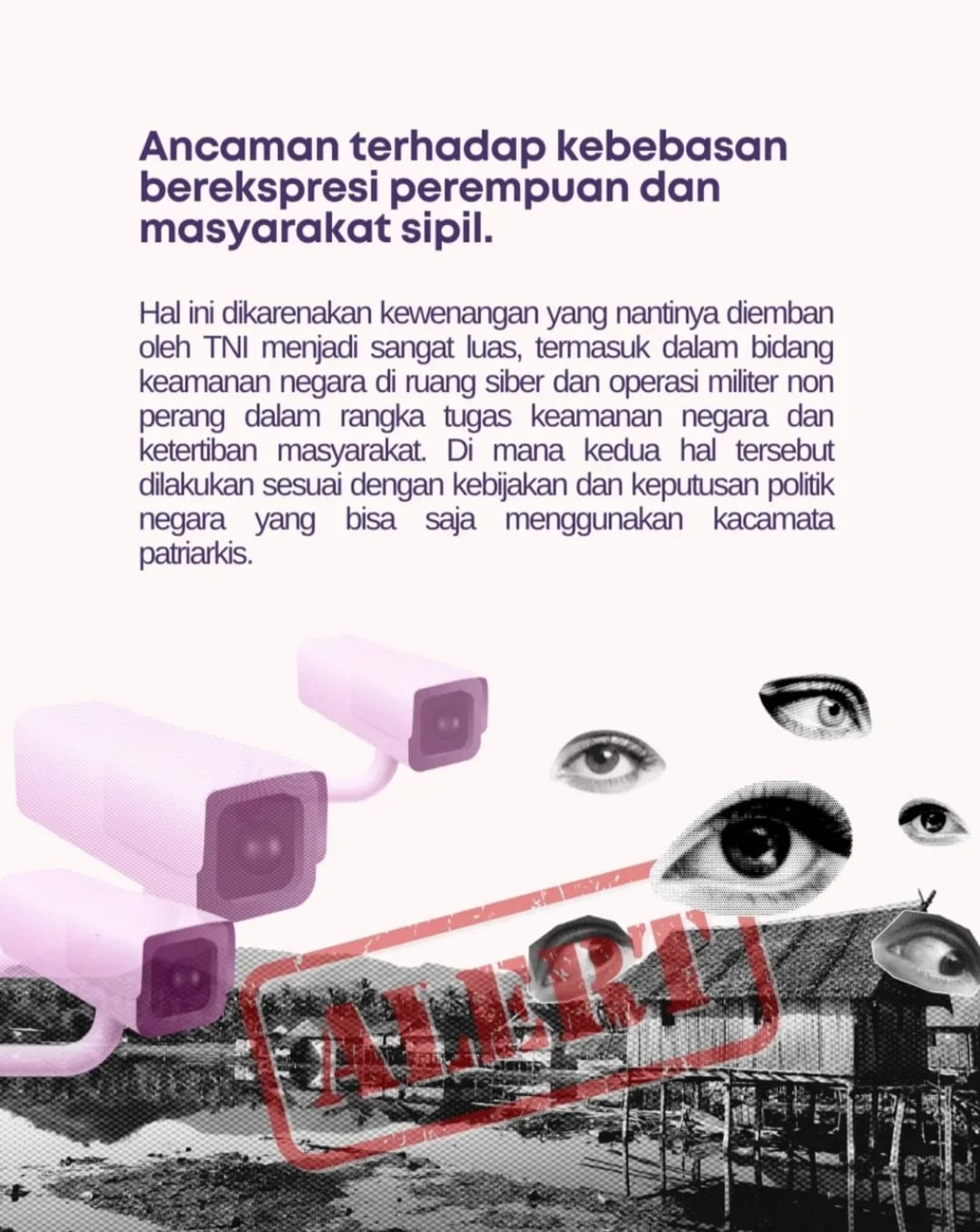The Association of Indonesian Legal Aid Organisations (LBH) APIK Indonesia and 18 LBH APIK offices in Indonesia rejected the revision of Law on Indonesian Military that would weaken civilian control and legitimize military’s dual functions.
The revision is at the moment being discussed in secret. Should this revision pass, the military is then able to enter a variety of civil sectors, which would:
- Open the path to military ascendency (re. power) that threatens democracy
- Blur the boundary between civilian and military power. The civilian authority over control and monitoring of military would no cease
- Open opportunities for misuse of military power in civilian affairs
Military’s dual functions threaten women’s lives and reverse gender health agenda in Indonesia. So what are these?
It is dangerous should active military personnel occupy positions at the Supreme Court. The revision would broaden military’s power. It would be able to insert itself into State structure, including the Supreme Court. As a judiciary authority, the Supreme Court is not to be intervened and/or influenced by others, including the military.
Such intervention would only reinforce military’s roles in court, to deal with violence cases against women. Past experiences show that violence cases against women, perpetrated by military personnel, that could be resolved through civilian court, would potentially be resolved through the military court. LBH APIK notes that military court has not acknowledged the Prosecutor General’s Regulation No. 4 Year 2017 on Guidelines to Try women Cases vis-à-vis the Law. Military Intervention in Supreme Court could result in impunity of perpetrators and non-fulfilment of victims’ rights.
Should the revision proceeds, it would undermine critical concept in access to justice for women – re. Impartiality of the court.
The government and the parliament should focus more on the revision of Military Court Law in order to strengthen the ‘equality before the law’ principle as stipulated in the constitution.
A number of media wrote about the military being involved in Food Estate projects in Merauke, and the “fear” in local indigenous communities of “such large military presence – as if in a war zone."
The consolidation of military legitimacy in development projects potentially threatens the work done by Women Rights defenders.
In the reform era, repression through military operation led to criminalization and violent acts against women, including against women rights defenders terutama who fight for the right to land.
The use of military power in agrarian cases potentially adds women’s trauma and vulnerability of violence, including sexual violence.
This would potentially rob women of access to strategic positions in a variety of civilian sectors. Should military personnel are actively seeking civilian positions, that would potentially take away opportunities and further marginalize women in strategic positions in civilian sectors, such as State Ministries and Instiutions, Parastatal Business Organisations, and other sectors.
Expanded military involvement in civilian sector may potentially drive policies into less inclusive and more gender injustices.
The Return of New Order-type of State Motherhood
Military approach in government tend to suppress women’s movement and limit expression of certain groups, particularly those active and critical of government policies. The weakening civilian supremacy would bring to life a new “State Motherhood” that was evident in the New Order era, where the State placed women, socio-politically, in public spaces, including politics and leadership.
The threat is real against freedom of expression for women and civilian population. This starts with expanded military power in national security that would include cyber space and non-war military operation and ensuring order. All these may be done in the name of State policies and political decision, based on patriarchy. []*
*source: Instagram LBH APIK












